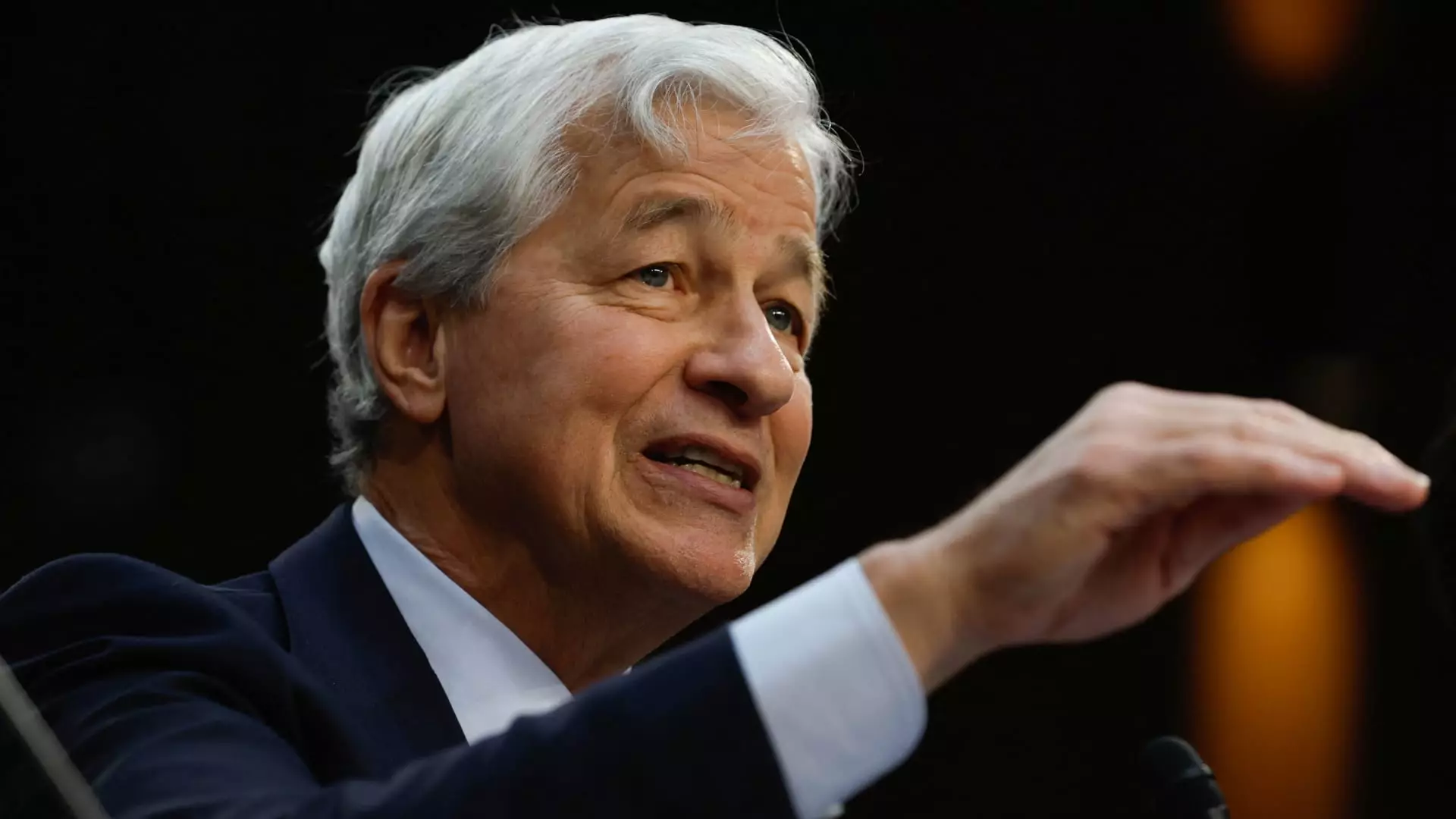In a stark revelation, JPMorgan Chase’s CEO Jamie Dimon has raised red flags regarding the future of corporate earnings as the storm clouds of U.S. trade policy loom ominously overhead. In a recent briefing, Dimon expressed his expectation for earnings estimates to drop, attributing this to the uncertainty surrounding President Trump’s erratic trade negotiations. It is a concerning scenario; with a significant percentage of corporations already bracing for a downturn, it begs the question: how many will weather this unprecedented economic turbulence?
Investor Sentiment: A Cautious Retreat
The atmosphere on Wall Street has shifted dramatically. Dimon noted that as analysts begin to recalibrate their expectations for the S&P 500, corporations are feeling the burn, evidenced by a forecasted drop between flat to negative growth. This is not merely a statistical prediction but feels like a red alert for corporate leadership. Indeed, the hesitation seen in businesses like Walmart and Delta Airlines highlights a broader trend—executives are pulling back on guidance and adopting a “wait-and-see” mentality. In many cases, this response is not only prudent but essential for survival in a fraught environment.
As Dimon emphasized, “Anecdotal examples suggest that people are being cautious.” This caution is not just confined to large corporations; even middle-market companies are reluctant to commit to new deals or investments. The unsettling impact of such anxiety ripples through the economy, stifling innovation and slowing growth. There’s a palpable sense of inertia among companies that typically thrive on forward momentum.
A Shift in Business Strategy
The commentary from JPMorgan’s CFO Jeremy Barnum further underscores a trend where long-term planning is sacrificed on the altar of immediate optimization. Companies are shifting their focus to the nitty-gritty of supply chain efficiency rather than investing for future growth. Barnum’s remarks capture the essence of the corporate psyche in these tumultuous times: navigating volatile policy landscapes forces leaders to adopt short-term fixes instead of making strategic long-term commitments.
To put it bluntly, the approach of “near-term optimization” could be a double-edged sword. While it may offer temporary relief and limited success, the long-term ramifications of such strategic concessions could spell disaster for many firms that might find themselves ill-prepared for future competitive landscapes.
The Contradiction of Consumer Behavior
Despite the negative outlook from corporate leaders, the consumer front presents a curious juxtaposition. Interestingly, consumer behavior appears relatively resilient, navigating the uncertain terrain with what Dimon describes as an uptick in purchases, likely driven by fears of impending cost increases from tariffs. This lends an ironic twist to the narrative—a solidifying consumer base juxtaposed against a faltering corporate landscape, challenging traditional economic assumptions.
However, can this consumer resilience endure the pressures of rising prices and a stunted corporate confidence? With J.P. Morgan leading the charge in sounding the alarm over falling earnings and investment stagnation, a significant shift is clearly underway in the entire economic tapestry of the nation. The next few months will not just dictate corporate earnings but may also redefine the contours of the American economic experience, as uncertainty reigns supreme.

